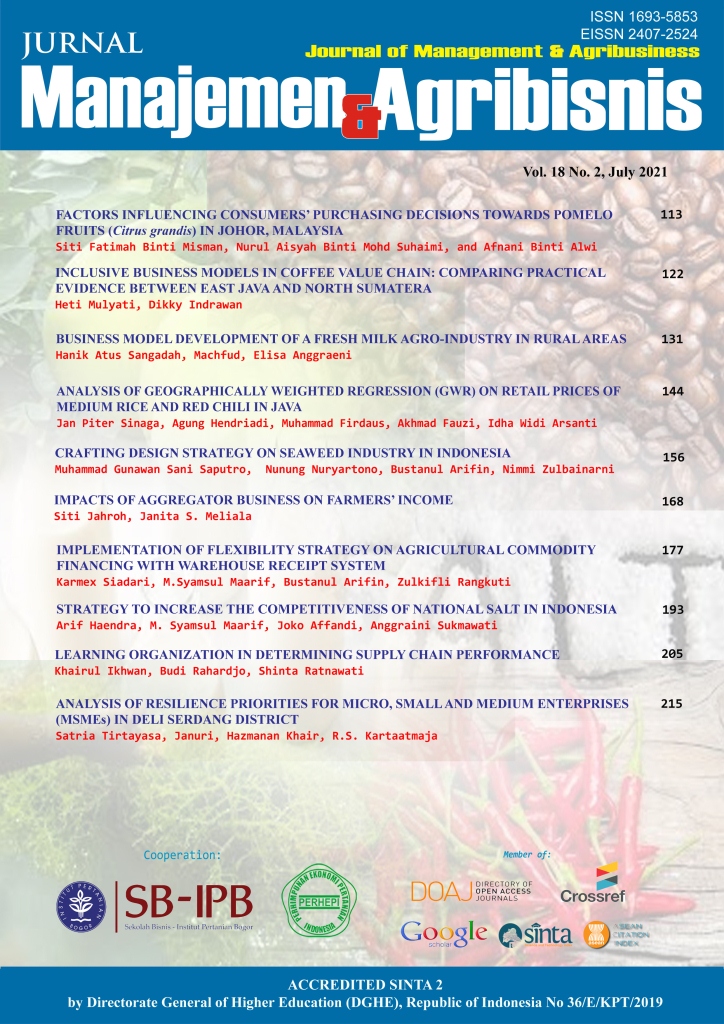Analysis of Geographically Weighted Regression (GWR) on Retail Prices of Medium Rice and Red Chili in Java
Abstract
Research using a global regression model might not be appropriate to find out the factors that influence strategic food prices based on spatial characteristics. To analyze the spatial effect, Geographically Weighted Regression (GWR) was employed. GWR models are better than OLS, which is indicated by the higher R2 GWR and lower AIC values. The GWR analysis provides the following findings: (1) the wholesale price most influential on the retail price of medium rice and red chili both during the main harvest and non-harvest periods; (2) the harvest pattern results in the effect of production and producer prices on the retail prices of the major harvest and non-harvest periods. Management of inter-regional distribution must be carried out to maintain supply stability and disparity in food prices between regions; (3) producer prices are integrated with trader prices in the district of production centers and surrounding areas while the integration of food prices at the consumer level occurs in the main economic center area of the region. These aspects have different effects for each region and district because the estimated parameters can be positive or negative. Testing during the harvest season (April) and non-harvest can also produce estimates that vary according to the specific characteristics of each location.
Keywords: spatial analysis, Geographically Weighted Regression (GWR), retail prices, wholesale price, spatial distribution patterns
Authors
Authors who publish with this journal agree to the following terms:
- Authors retain copyright and grant the journal right of first publication with the work simultaneously licensed under a Creative Commons Attribution License that allows others to share the work with an acknowledgement of the work's authorship and initial publication in this journal.
- Authors are able to enter into separate, additional contractual arrangements for the non-exclusive distribution of the journal's published version of the work (e.g., post it to an institutional repository or publish it in a book), with an acknowledgement of its initial publication in this journal.
- Authors are permitted and encouraged to post their work online (e.g., in institutional repositories or on their website) prior to and during the submission process, as it can lead to productive exchanges, as well as earlier and greater citation of published work (See The Effect of Open Access).

